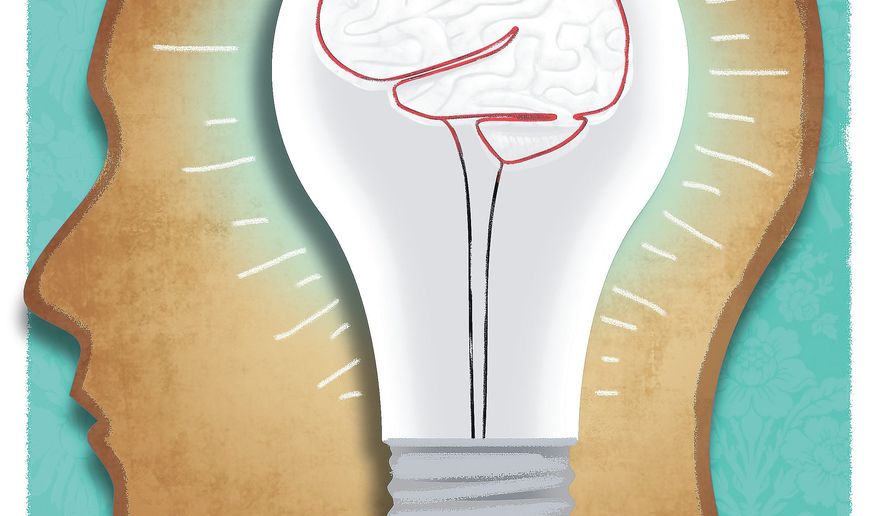OPINION:
April 26 is World Intellectual Property Day — a day too little-noticed in most quarters but which shouldn’t be.
According to a widely cited U.S. Department of Commerce study, intellectual property-intensive industries comprised over 38 percent of the entire U.S. economy in 2014, amounting to a $6.6 trillion contribution. Moreover, the same study found that, in 2014, IP-intensive industries directly accounted for 27.9 million jobs and indirectly accounted for an additional 17.6 million jobs, or about 30 percent of all U.S. employment.
Thus, it is beyond dispute that protection of intellectual property against piracy and theft, especially the protection of copyrights and patents, is crucial to maintaining a healthy U.S. economy in our information-dependent Digital Age. According to a 2017 Organization for Economic Cooperation and Development report, the global value of international and domestic trade in counterfeit and pirated goods in 2013 was between $710 billion and $917 billion. And the global loss in value of digital piracy in movies, music and software in 2015 was $213 billion.
So, it’s easy to understand why strengthening protections against piracy and theft of IP are ongoing priorities and should be important elements in trade negotiations, whether in a multilateral context as with NAFTA or in a bilateral setting as with China.
But World IP Day ought to be about more than absorbing IP-related facts and figures. It should be a time to consider foundational intellectual property principles and to reinforce appreciation of the U.S. Constitution’s Intellectual Property Clause, which declares that Congress shall have power “To promote the Progress of Science and useful Arts, by securing for limited Times to Authors and Inventors the exclusive Right to their respective Writings and Discoveries.”
What were our nation’s Founders thinking when they gave the national government the power to secure this “exclusive Right” in the Constitution of 1787 — even before securing other fundamental rights in the Bill of Rights? There is little in the record of the Constitutional Convention to answer that question. But there is much we know about the history of the colonial period and about the Founders’ philosophical predispositions that is helpful.
In the main, the American Founders subscribed to Lockean natural rights principles regarding property. As John Locke explained in this famous passage in his Second Treatise of Government:
“[E]very man has a property in his own person: this no body has any right to but himself. The labour of his body, and the work of his hands, we may say, are properly his. Whatsoever then he removes out of the state that nature hath provided, and left it in, he hath mixed his labour with, and joined to it something that is his own, and thereby makes it his property.”
By and large, the Founders, including James Madison, the Constitution’s principal draftsman, accepted what was then understood to be Locke’s classically liberal proposition that every person has a natural right to enjoy the fruits of his or her own labors. In other words, the product or expression of a person’s creative endeavors is that person’s own property. And they accepted the correlative fundamental proposition that a primary purpose of government is to protect private property.
For the Founders, it followed that this natural right to the protection of the fruits of an individual’s labors included intellectual labors, such as their writings or inventions. In his 1792 National Gazette essay “On Property,” Madison offered a broad understanding of property: “In its larger and juster meaning, it embraces every thing to which a man may attach a value and have a right; and which leaves to every one else the like advantage.”
According to Madison, included in this “larger and juster meaning” of property, “a man has property in his opinions and the free communication of them” and “an equal opportunity in the free use of his faculties and free choice of the objects on which to employ them.” Hence, Madison left no doubt that his understanding of property included intellectual property — the “exclusive Right” to which must be secured by government.
It’s worth noting too that before adoption of the Constitution, almost all of the colonies had enacted laws protecting what was then called “literary property.” And they relied explicitly on Lockean natural rights principles in doing so. Noah Webster, often referred to as the “Father of Copyright,” traveled near and far lobbying colonial legislatures to protect literary property. In his petition to Delaware he declared: “The right of a farmer and mechanic to the exclusive enjoyment and right of disposal to what they make or produce is never questioned. What, then, can make a difference between the produce of muscular strength and the product of the intellect?”
The celebration of Constitution Day is not until September 17. Nevertheless, on World IP Day, here in America, we should pause to reflect upon the constitutional foundations for protecting intellectual property.
To be sure, as the facts and figures recited at the outset demonstrate, there are important reasons relating to securing our nation’s economic prosperity to do so. But, more importantly, as our Founders well understood, we must do so to secure each individual’s right to enjoy the fruits of his or her intellectual labors, that is, his or her intellectual property.
• Randolph J. May is president of the Free State Foundation, where Seth L. Cooper is a senior fellow. They are co-authors of “The Constitutional Foundations of Intellectual Property.”




Please read our comment policy before commenting.